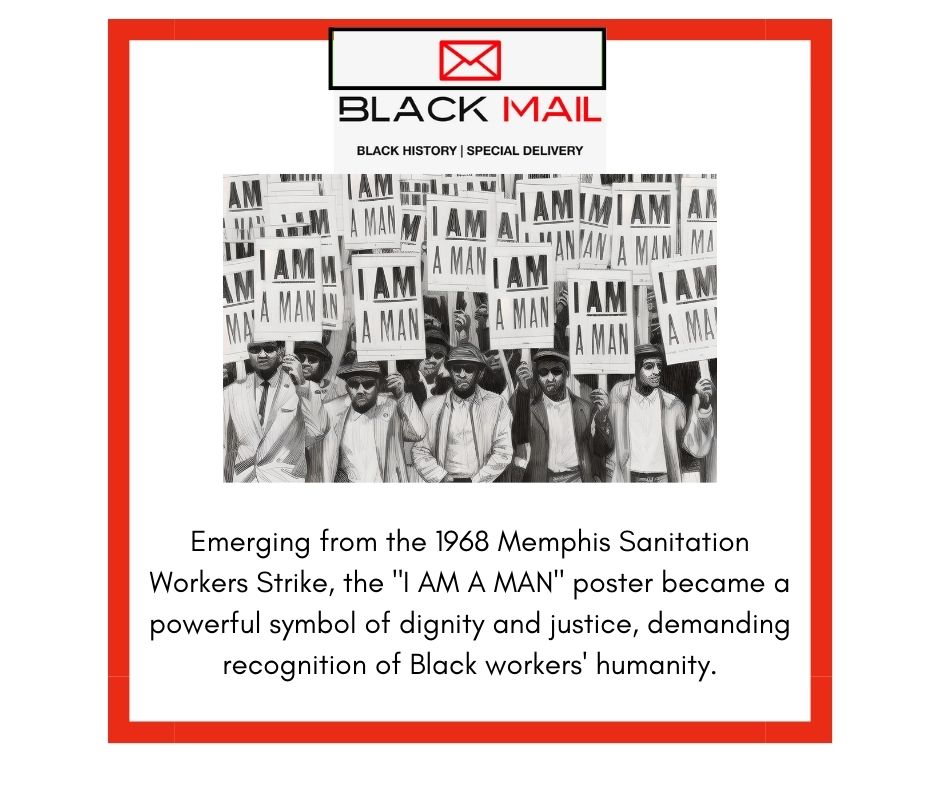Black History: Special Delivery!!

Emerging from the 1968 Memphis Sanitation Workers Strike, the “I AM A MAN” poster became one of the most powerful and enduring symbols of the Civil Rights Movement. The message demanded recognition of Black workers’ humanity and value, challenging systemic racism and dehumanization.
The strike began on February 12, 1968, after the tragic deaths of Echol Cole and Robert Walker on February 1. During a storm, the two sanitation workers sought refuge inside the compactor of the malfunctioning garbage truck they were riding on because they were denied access to white-owned businesses. The truck’s faulty machinery activated, crushing both men to death. This incident underscored the unsafe working conditions faced by Black sanitation workers, prompting over 1,300 of them to strike for better wages, safer conditions, and union recognition.
The workers carried “I AM A MAN” signs as part of their protests. The slogan, like the strike itself, was part of a coordinated focus on nonviolent direct action designed to force the city to recognize both the humanity and labor rights of sanitation workers. Rev. James Lawson, who organized much of the strategy for the strike, believed in the power of direct action guided by moral strength. He explained, “Our struggle is about forcing America to see that every person has value and deserves the same rights.” The posters and protests served not only as a demand for immediate change but also as a symbolic rejection of centuries of dehumanization.
Dr. Martin Luther King Jr. saw the strike as part of the broader Poor People’s Campaign, which aimed to address racial and economic inequality. King arrived in Memphis to support the workers and delivered his “I’ve Been to the Mountaintop” speech on April 3, 1968. In it, he called for solidarity and urged the workers to continue their nonviolent protests. The following day, King was assassinated at the Lorraine Motel, a tragedy that intensified the strike and drew global attention to the workers’ demands.
In the aftermath of King’s assassination, public pressure forced Memphis officials to negotiate. By April 16, 1968, the workers achieved significant victories, including wage increases, improved safety measures, and union recognition. Their success demonstrated the power of collective action in fighting both racial and economic oppression.
The “I AM A MAN” slogan resonated deeply because it challenged centuries of dehumanization. It became a powerful assertion of equality and self-worth, emphasizing that Black workers deserved the same rights and respect as anyone else. This message remains relevant today, inspiring movements like Black Lives Matter to address ongoing issues of racial and economic injustice.
Another installment of melanated mail has been delivered. Ponder, reflect, and pass it on.
Sources:

